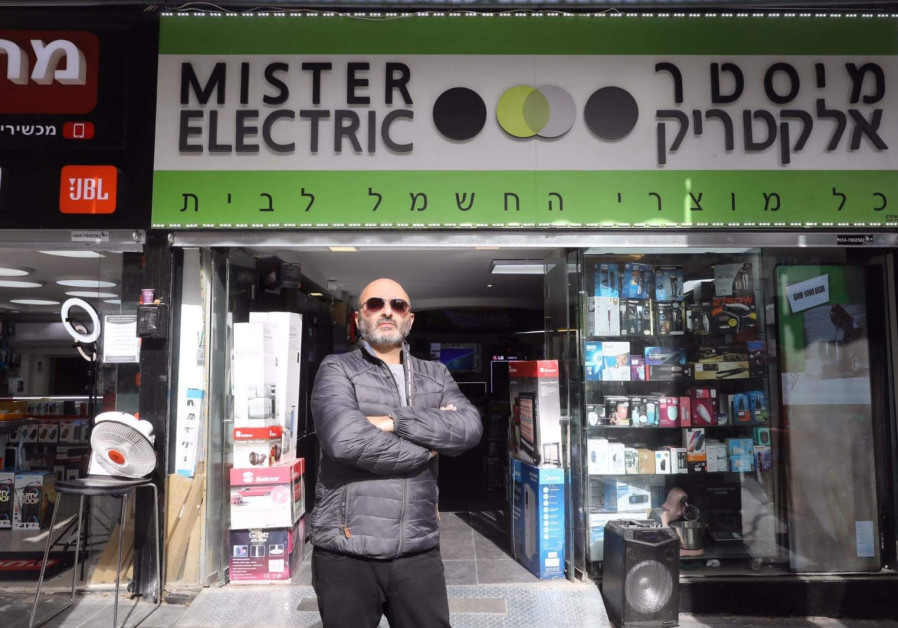As Israel’s third lockdown continues in its second month, anger has turned into a sense of hopelessness for small businesses.
“At this point, I just don’t know what to do,” said Jan Elazar Refoua, who owns the Ora gift shop in Jerusalem’s city center. “They tell us to close; they tell us to open. We can’t go on like this. We have been here for 40 years, and we have always worked with tourists. But now there are no tourists. Other than a few people calling to place orders, there’s nothing.”
“We have gotten some help from government grants, and they helped, but they aren’t enough,” he said. “If we open in the next week, we can keep the business going. But we don’t want to sit at home getting grants. We want to work.”
When Israel’s third lockdown started on December 27, officials estimated that it would cost Israel’s economy NIS 2.5 billion to NIS 3b. per week, not counting the costs caused by businesses going bankrupt and continuing unemployment.
However, the rules of the lockdown became even more restrictive during the second week of January, and with novel coronavirus infection numbers dropping more slowly than expected, there is no end in clear sight.
The lockdown is currently scheduled to end Friday, but it seems likely that it will be extended. A total closure of Ben-Gurion Airport to commercial passengers, scheduled to end Sunday, also appears set to continue for longer.
That means commerce in Israel’s largest commercial and tourist centers is at a standstill.
“When I walk around central Jerusalem, I see that no less than 97% of stores are closed, and those that are open have just the owner working, without any employees,” said Ilan Ben-Harosh, who owns an electronics store in the center of Jerusalem. “Many stores are for rent, and many of the businesses that have closed won’t restart. The current lockdown has made things much worse than it was beforehand. People are losing hope and aren’t interested in going out anymore.”

Government policies have exacerbated the situation, Ben-Harosh said.
“The government offers different grants to businesses that are affected by the closures, and those that can show that they have lost 95% of their business are entitled to even larger amounts,” he said. “So at this point, some people are calculating that they might make more if they stay home than if they open.”
The government is responsible for policies that have encouraged unemployment, Ben-Harosh said.
“The country made a big mistake by giving halat [unpaid leave] payments to so many workers,” he said. “They should have instead given the money to the stores to continue to employ them.”
Refoua said he was concerned that many customers will be lost for good because essential stores such as supermarkets have been allowed to stay open and sell goods like the ones he carries, while his business is shuttered.
“It’s not fair that I can’t let someone into my store, but they can,” he said.
That claim was upheld by the High Court of Justice on Tuesday. In response to a lawsuit filed by various businesses, it ruled that essential stores cannot sell nonessential products during the lockdown. But while that may feel fair to angry shop owners, it is a blow to shoppers who already have few options during this period.
“In general, businesses feel very limited by a lack of clarity,” said Nurit Schechter, an activist for small businesses and an event organizer in Shoham. “We see that people are out at demonstrations, and we feel like this lockdown is for the business owners only.
Many businesses are unable to open their stores even if they follow all the rules, and the fines for breaking the rules are so high. We can’t make up the losses we’ve had, and we don’t know what will be.”
Many businesses are unable to open their stores even if they follow all the rules, and the fines for breaking the rules are so high. We can’t make up the losses we’ve had, and we don’t know what will be.”
Nonetheless, Ben-Harosh said there is a sense of hope for an uncertain future.
“We are a strong nation, and this is a great crisis, but we will get out of this,” he said.
